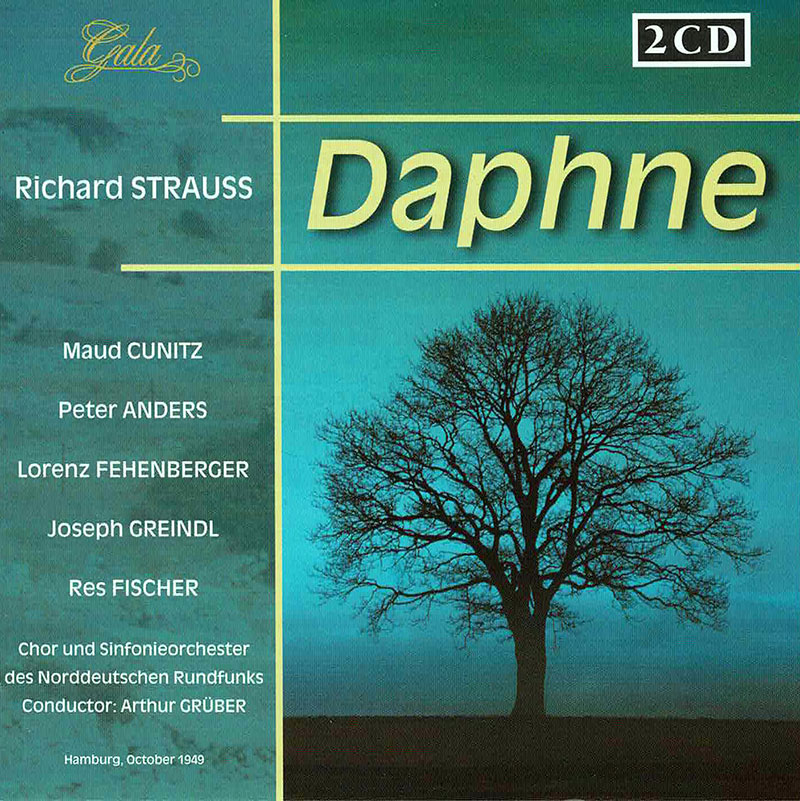Logowanie
Dziś nikt już tak genialnie nie jazzuje!
Bobby Hutcherson, Joe Sample
San Francisco
SHM-CD/SACD - NOWY FORMAT - DŻWIĘK TAK CZYSTY, JAK Z CZASU WIELKIEGO WYBUCHU!
Wayne Shorter, Freddie Hubbard, Herbie Hancock, Ron Carter, Elvin Jones
Speak no evil
UHQCD - dotknij Oryginału - MQA (Master Quality Authenticated)
Chesky! Niezmiennie perfekcyjny
Winylowy niezbędnik
ClearAudio
Double Matrix Professional - Sonic
najbardziej inteligentna i skuteczna pralka do płyt winylowych wszelkiego typu - całkowicie automatyczna
STRAUSS R., Maud Cunitz, Peter Anders, Lorenz Fehenberger, Sinfonieorchester des Norddeutschen Rundfunks, Arthur Gruber
Daphne

Performer: Maud Cunitz (Soprano), Lorenz Fehenberger (Tenor), Peter Anders (Tenor), Gustav Neidlinger (Bass Baritone), Josef Greindl (Bass) Conductor: Arthur Grüber Date of Recording: 1949 Review by: Robert Levine Artistic Quality: 7 Sound Quality: 4 Even if this performance of Daphne didn’t have much to recommend it, this inexpensive set would be worth acquiring for the selection of nine orchestrated and four piano-accompanied Strauss songs sung by Peter Anders. We’re accustomed to hearing most of them sung by women, but Anders’ gorgeous legato, his beautiful sweet singing, fine phrasing, and fearless top notes make us wonder if Strauss would have composed more for tenor had he known tenors could sing as soaringly as sopranos. The huge tonal bath of “Winterliebe” is followed by a long-breathed, thoughtful, gentle “Waldseligkeit”; “Ständchen” is simply ravishing. You only wish Anders had recorded the Four Last Songs. Taken from recordings made in Berlin in 1938, ’42, and ’43, the songs feature no less than Furtwängler conducting four of them. Daphne is a strange opera. Originally slated to be the second work on a double bill with Friedenstag, that pairing only took place a year after Friedenstag premiered alone, in 1938. Since then, it has only rarely been the second half of anything. It isn’t performed often–but when it is, it can stand by itself. Called a “bucolic tragedy”, the opera concerns the god Apollo’s love for the nature-loving Daphne and his jealousy of a shepherd, Leukippos, who also loves her (both men are tenors–a rarity anywhere but in Rossini, and unique in Strauss). Apollo kills Leukippos and turns Daphne into a laurel tree: The final transformation scene, ending in a wordless, melismatic passage, is one of the most stunning things Strauss ever penned. The opera has its uninspired moments, but the inspired ones–including Daphne’s opening and closing monologues, all of Apollo’s music, an exciting, dramatic trio–take up more than half of the work’s 110 minutes (at least as recorded here–Grüber’s very slow reading is 10 minutes longer than the other two available performances) and are as beautiful as anything Strauss composed at his lyrical best. This recording dates from 1949. As Daphne, a role that requires a voice like that of Sophie in Rosenkavalier, Maud Cunitz has all the notes and sings expressively. Her sound is not beautiful and the voice is slightly too heavy, but she’s very expressive. If the tempos for her solos were somewhat faster she might also sound a bit younger, which would help. Hilde Gueden, on DG under Karl Böhm, is almost perfect in the part–just a bit of acid in her tone makes her less than ideal. Anders is the Apollo and he copes with the endlessly high tessitura well and sings with godlike passion. (James King, in one of his finest recorded performances, is on the DG set.) Again, the lethargy in the conducting does some damage to Anders’ delivery of his final monologue, but he’s remarkable if not quite as fresh as he is in the songs, recorded years earlier. Lorenz Fehenberger sings Leukippos, a lyrical role, quite well, even successfully managing a phrase that cruelly begins on a high-C. He’s no match for Fritz Wunderlich under Böhm, though. Josef Greindl and Res Fischer are Peneios and Gaea, Daphne’s parents. Both roles are low-lying and have some nice if inconsequential music; both singers are impressive. The others in the cast and chorus and orchestra are far better than we have any reason to expect. The sound is tubby but absolutely clear. The only time when the slow tempos are preferable is during the Apollo/Daphne duet (with chorus in the background); it is Strauss’ most sensual tenor/soprano music, and here the soloists can bathe in it. As suggested, the DG/Böhm version of the opera is preferred (an okay EMI set with Lucia Popp also is overshadowed by Böhm), but there’s something very appealing about this production as well. And the 40 minutes of Anders singing Strauss is worth the low price of this two-CD set.


































